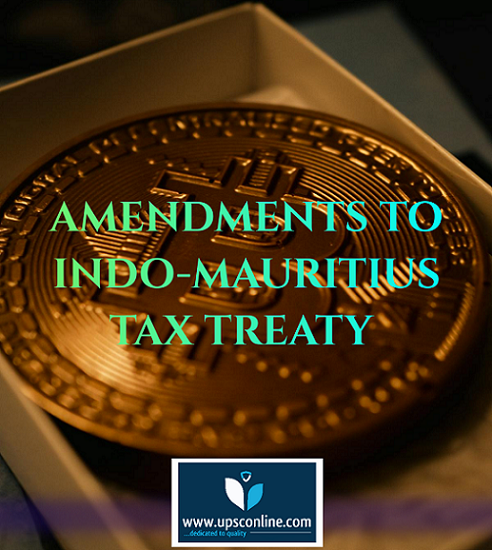Foreign portfolio investor (FPI) money channeled through Mauritius has historically played a role in the Indian market, but recent amendments to the tax treaty raise questions about its future significance. Recently, India and Mauritius amended their tax treaty to introduce the PPT.
This means that simply having a Tax Residency Certificate (TRC) issued by Mauritius is no longer enough to claim tax benefits under the treaty.
CURRENT MARKET SCENARIO
Over 600 Foreign Portfolio investors(FPI) from Mauritius manage roughly $50 billion in assets under custody(AUC) in India. This translates to approximately 6% of the total FPI AUC in the country. In March 2024, Mauritius funds held only 5.61% of the total FPI equity AUM in India. This is a sharp drop from 14.53% they held five years ago. As a result, Mauritius-based funds are now the fourth largest investor by geography, following the US, Singapore, and Luxembourg.
Investment via the Mauritius route were already on the decline and this step will further ensure that only those funds which can prove legitimate business reasons to be based out of Mauritius, will choose to invest through that jurisdiction.
This amendment aims to prevent “treaty abuse,” where investors exploit loopholes in tax treaties for tax advantages. This move aligns with global efforts to combat tax evasion. The PPT aims to prevent “treaty abuse,” where investors use jurisdictions like Mauritius solely to benefit from lower tax rates, without having a genuine economic connection to the country.
The Double Taxation Avoidance Agreement, is a bilateral agreement aimed at preventing double taxation of income earned in one country (India) by residents of the other country (Mauritius). Before 2016, the DTAA between India and Mauritius allowed investors based in Mauritius to be taxed on their Indian investments at the lower rate applicable in either country.
THE FIRST AMENDMENT
Before 2017, investors could avoid Indian capital gains tax by routing investments through Mauritius. The amendment now taxes capital gains from post-2017 Mauritius investments in India, regardless of the investor’s location. Existing investments (pre-2017) remain protected under the grandfathering clause.
The Line of business (LOB) clause ensures the treaty benefits are only enjoyed by genuine Mauritian residents. This significantly reduced the appeal of the Mauritius route for fresh investments.
SECOND AMENDMENT :- THE PRINCIPAL PURPOSE TEST
This test assesses the primary reason behind an investment structure. If the sole purpose of using Mauritius is to gain tax benefits under the treaty (without a legitimate business connection), the treaty benefits will be denied. This aims to curb “treaty shopping,” where investors exploit loopholes for tax advantages.
The primary objective here is a global effort to stop Base Erosion and Profit Shifting by Multinational Corporations. The same clause is added in other treaties as well to stop MNCs from treaty shopping for their benefit.
Before 2016 The India-Mauritius tax treaty exempted capital gains tax on both sides, leading to significant foreign investment inflows routed through Mauritius. Many businesses and funds, despite having no real presence in Mauritius, set up shell companies there to channel investments into India tax-free.
The proposed amendment to the India-Mauritius Double Taxation Avoidance Agreement (DTAA) introduces a Principal Purpose Test (PPT) requirement for Foreign Portfolio Investors (FPIs) and other investors seeking to avail themselves of capital gains benefits.
It means , if it is found that the sole purpose of a transaction structured out of Mauritius by a third country resident is to gain the benefit of the favourable tax regime offered under the treaty, then in such cases India may opt to deny favourable treaty benefits concerning capital gains tax to such investors due to ‘treaty abuse’.
Since India introduced General Anti-Avoidance Rules (GAAR) in 2017, foreign funds have been prohibited from selecting jurisdictions solely for tax advantages.
The investors will be required to prove that they have commercial reasons and an appropriate business structure for being based in Mauritius rather than simply availing the tax benefits.
CBDT Circular 789 had clarified that TRC by Mauritian authorities will constitute sufficient evidence of residence to claim benefits of tax treaty. Later, the Supreme Court of India in the case of Azadi Bachao Andolan upheld the validity of Circular No. 789.
IMPACT ON INVESTMENTS
The tax authorities will have the ability to take a closer look at the structure, and assess the intent and commercial rationale, before granting treaty benefits. This change might lead to increased scrutiny from Indian tax authorities. Investors using Mauritius for legitimate business reasons should not be concerned.
Although there has been an initial backlash due to this proposed change, causing FPIs withdrawing approximately Rs 8,000 crore from Dalal Street, causing an 800-point drop in the Sensex, the government has assured that the domestic liquidity is sufficient to absorb these outflows.
The Income Tax Department of India has reassured investors through a tweet that the change is pending ratification and notification under Section 90 of the Income Tax Act, alleviating immediate concerns over investment withdrawals.
While the full impact of the 2024 amendment remains to be seen, it signals a stricter approach to tax treaties. This could potentially lead to a shift in how foreign investments flow into India, with a greater emphasis on transparency and legitimate business purposes.



0 Comments